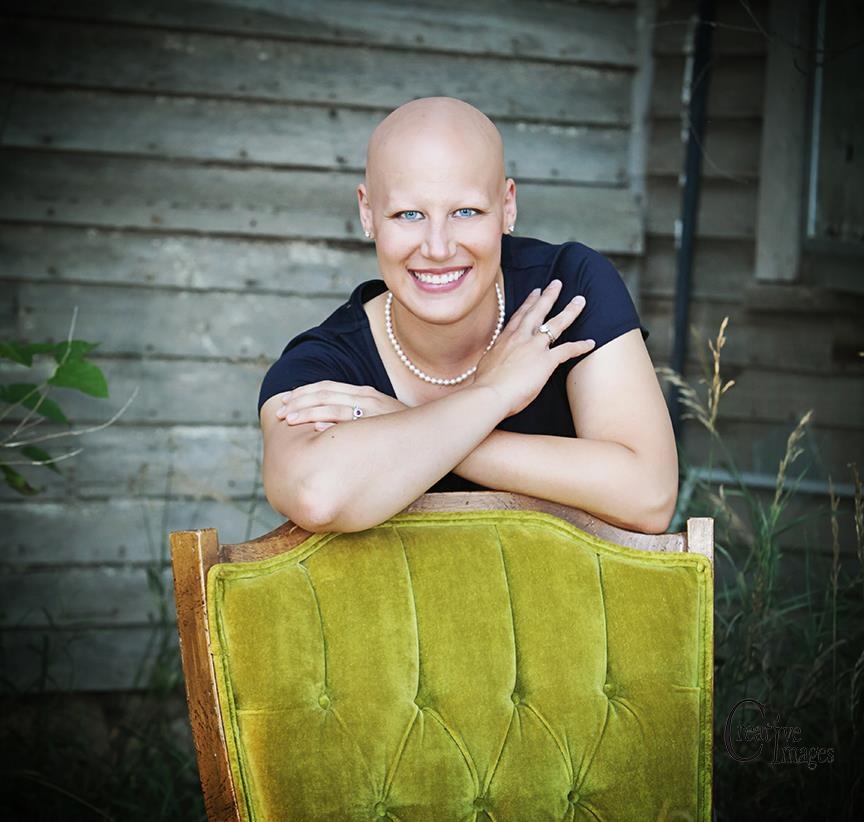You may be wondering why we at Bald Girls Do Lunch are writing about clinical trials. We have noticed there has been a recent uptick in the number of mentions of alopecia areata and clinical trials in the news. After some research we are writing this week to share some basic information about clinical trials and important things to keep in mind if you are thinking of participating in one. We even had a chance to catch up with Sydney from our previous post to hear her weigh in with her reaction to current news of clinical trials related to alopecia areata.
What are Clinical Trials?
According to the U.S. National Insitutes of Health, a clinical study involves research using human  volunteers (also called participants) that is intended to add to medical knowledge. There are two types of clinical studies: clinical trials and observational studies. In this post we will focus soley on clinical trials.
volunteers (also called participants) that is intended to add to medical knowledge. There are two types of clinical studies: clinical trials and observational studies. In this post we will focus soley on clinical trials.
In clinical trials, participants are given certain interventions that are highly specific to the researchers' plan. The consent forms to participate should describe in great detail exactly what the purpose of the investigation is along with the risks and potential benefits.
Additionally, you will want a clear description in terms you can understand of where your personal information will be locked away. You will want to ask how it will be kept highly secret and how your name and other personal data will be replaced with an identifier code.
Most of the time, clinical trials are run to determine if a new device or drug is safe for people to use as a treatment. Sometimes the trial is taking a drug used for one or more medical conditions and studying how it works for another medical condition. That is why you may see the words "FDA-approved" which could indicate that the drug has been approved for treatment or study for another medical condition, not necessarly the condtion that you have. Clinical trials take many forms:
- Another purpose could be to compare the use of a treatment in one population compared with another population that was not previously tested.
- Or, a treament that had a result in a single individual is retested in a larger clinical trial with many participants to see if the results can be replicated.
- A clinical trial could also take a treatment and compare people using the treatment against other participants who receive a placebo.
- In the most well-designed studies, neither the researchers nor the participants know who is getting the active drug and who is getting the placebo. This is called a double-blind study.
- We've given just a few examples, but the possibilities for good research design are endless. There is wide variation. And remember, because a study is published does not necessarly mean it was well-designed.
Why should I consider participating in a clinical trial?
Although there are always risks involved in participating in a clinical trial, it is usually the benefits which draw in participants. By participating in a clinical trial, you can expect to experience at least one of the following benefits, but keep in mind that many clinical trials are testing drugs as a last attempt to stall a severe disease for which all other options for prolonging life have been exhausted. Or with some skin diseases, the discomforts are so severe that they severely limit one's ability to function in normal daily activities such as dressing or going to work.
- Clinical trials can provide no-cost access to potentially effective treatments before they are widely available to the public as well as a highly attentive medical team monitoring your health
- The treatment being investigated may be even more effective than other treatments (if any) currently available
- As a participant, your efforts have the potential to help others who require treatment for the same condition in the future
- Not only do you help others with a similar condition, you are also helping to advance science by contributing to medical research
What do I need to know before participating?
When you are considering participating in a clinical trial it is important to do a great deal of research beforehand about the clinical trial that is of interest. You are also entitled to and should insist on access to the complete consent forms in advance of a visit to the medical center so you can read and understand them very clearly before you make a final decision to participate. It is your right to take the forms home and think it over.
The Oregon Medical Research Center stresses that prospective participants should understand:
- what happens during the trial
- the type of health care you as a participant will receive
- costs (if any) you may incur as a result of participating***
- understanding that there are both benefits and risks associating with participating
The main thing to remember is that every study is different and that is why research beforehand is so critically important. If you are looking into becoming a participant in a clinical trial, be sure to carefully read the consent form that is provided to you before you agree to participate. Each consent form should be informative and tailored to the specific study it relates to. With a clinical trial, there is no such thing as a "generic" consent form. Take your time, and do not feel pressured or rushed.
*** According to the current online consent form, no costs are reimbursed for any part of the Alopecia Areata Registry administered by MD Anderson Medical Center. A clear definition of privacy and confidentialy is also absent from that form.
Checking in with Sydney
 We had the chance to catch up again with Sydney from our last post to hear her thoughts on clinical trials specifically relating to alopecia drug trials.
We had the chance to catch up again with Sydney from our last post to hear her thoughts on clinical trials specifically relating to alopecia drug trials.
Thea: What’s your reaction to the recent media reports of clinical trials that grew hair? Is this type of media coverage helpful to someone like you with alopecia?
Sydney: I believe they aren’t worth the time and money. And what are the side effects? Is hair really worth taking a chance to harm your body? I think it’s nice to know such things but I think it’s false hope and could pose potential health hazards.
Thea: Have friends and family seen the media reports and suggested you should look into getting these medications? How have you responded?
Sydney: Yes they have. I tell them exactly what I stated above and it tends to make them rethink their approach.
In today's world, clinical trials are the first step to testing whether a form of treatment is effective in human subjects. While there are many potential benefits to becoming a participant in a clinical trial, be sure to take your time when considering the specific benefits and risks of the trial to see if it is the right decision for you. We will follow up in the upcoming weeks with further information about recent clinical trials specific to people with alopecia areata. In these posts you will hear from more women with alopecia about their reactions to media reports of these studies.

